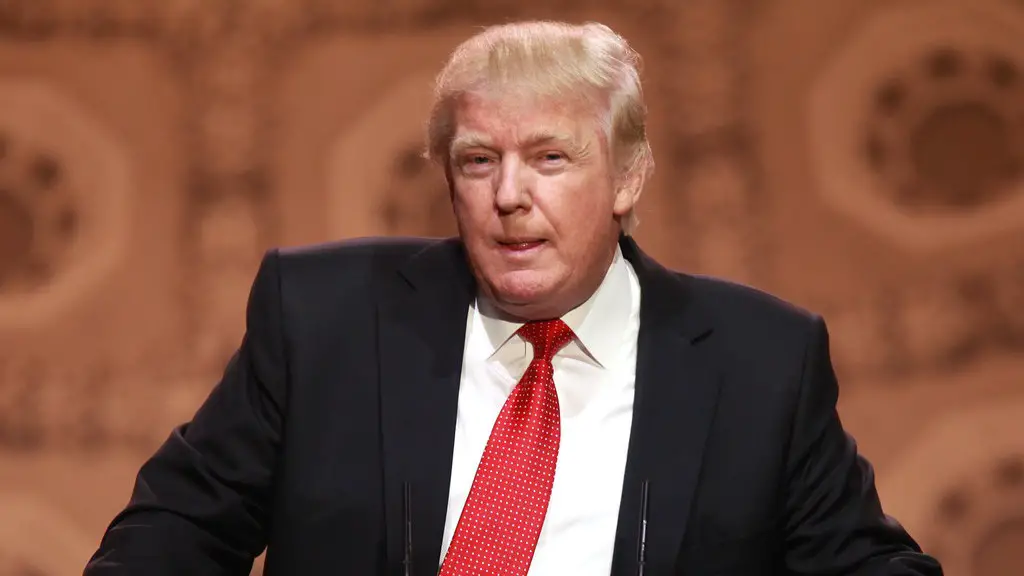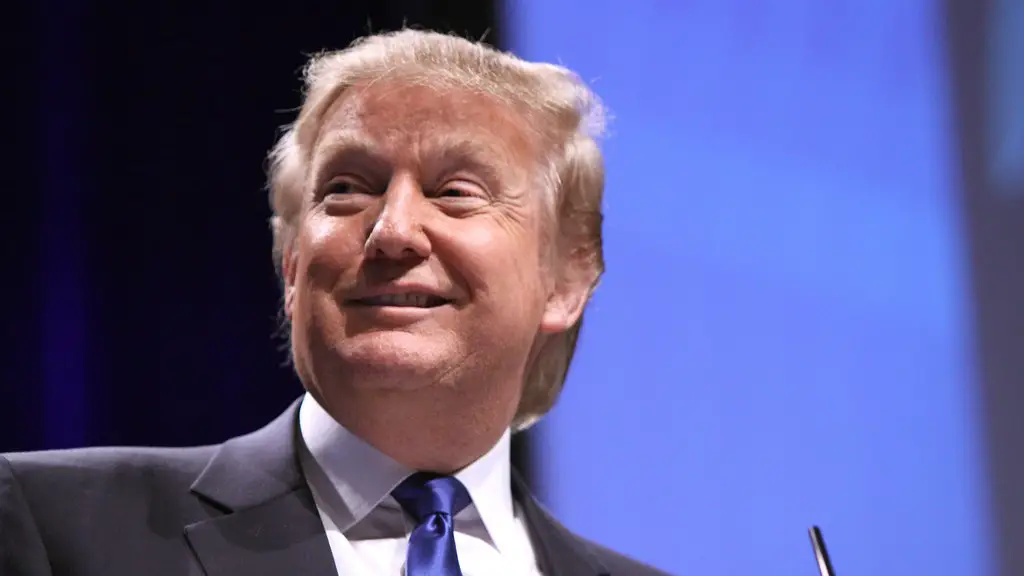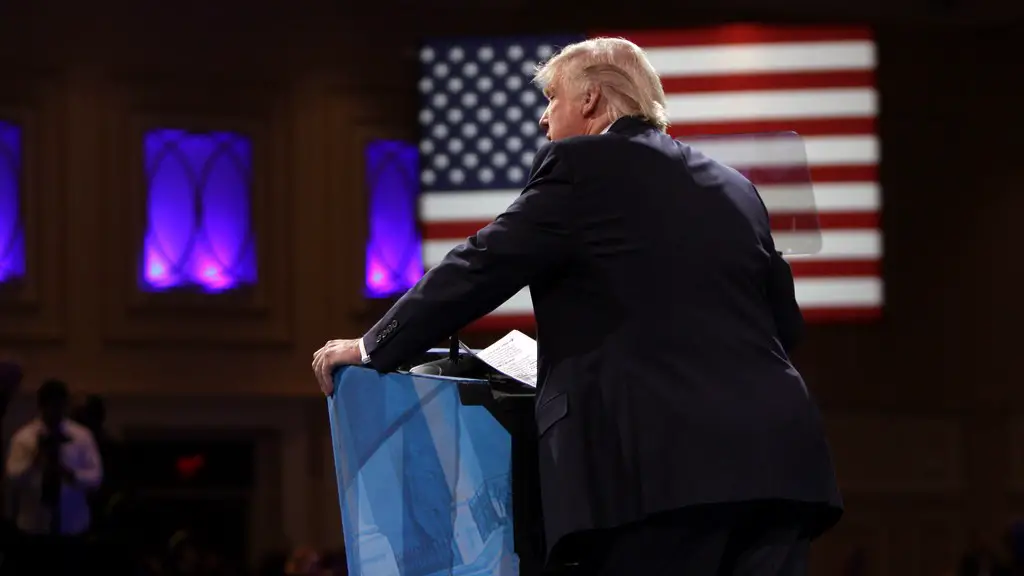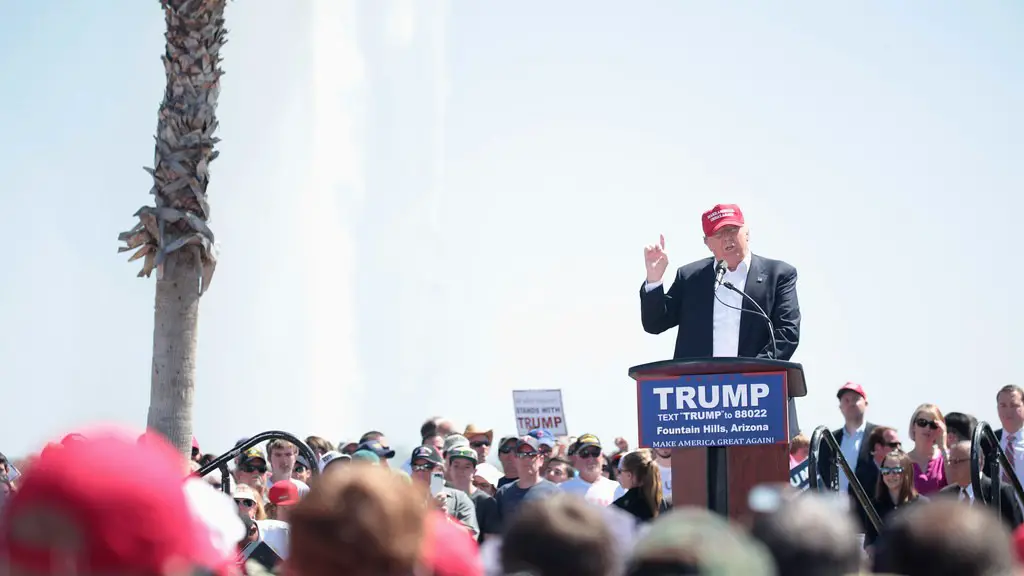There has been much discussion on whether or not Donald Trump can declare a state of emergency. While there is no concrete answer, it is important to look at the pros and cons of such a declaration. First, declaring a state of emergency would allow Trump to bypass Congress and rule by executive fiat. This could be seen as a power grab by Trump and his supporters. Second, a state of emergency could lead to civil unrest and even violence. Trump would need to be very careful in how he handled such a declaration. Third, it is unclear if Trump has the legal authority to declare a state of emergency. This would likely be challenged in court. Finally, declaring a state of emergency would be a very drastic step and should not be taken lightly.
No, the President cannot declare a state of emergency.
Can the president declare a state of emergency?
Emergency declarations are a powerful tool that the President can use to mobilize federal resources in order to respond to a crisis. In many cases, an emergency declaration can provide much-needed assistance to state and local governments who are struggling to cope with the effects of a disaster.
While emergency declarations are typically used in response to natural disasters, they can also be used in response to man-made disasters, such as terrorist attacks.
Emergency declarations are not without controversy, however. Some critics argue that the President has abused the emergency declaration power in recent years, using it to bypass Congress and pursue his own agenda.
Franklin D Roosevelt was the first president to assert the power to declare emergencies without limiting their scope or duration, without citing the relevant statutes, and without congressional oversight. The Supreme Court in Youngstown Sheet & Tube Co v. Sawyer held that this power was not absolute, and that the president could only declare an emergency if there was a clear and present danger to the country.
Can a President declare an emergency without a request from the state
The National Emergencies Act authorizes the President to declare a national emergency without a specific request from a state. Such declarations do not provide any specific emergency authority and instead rely on emergency authorities provided in other statutes.
This means that the President can declare a national emergency, but that emergency will not provide any specific powers or authority. Instead, the President will have to rely on other laws that provide emergency powers.
A state of emergency can be declared in times of natural disasters, such as floods or earthquakes, or in times of man-made disasters, such as war or terrorist attacks. When a state of emergency is declared, the government is given special powers to help it respond to the crisis. These powers may include the ability to impose curfews, to ration supplies, or to evacuated citizens from danger areas.
Who can declare emergency in us?
A national emergency is a serious, unexpected, and often dangerous situation that requires immediate action. The President is authorized to declare a national emergency in order to protect the people of the United States. When a national emergency is declared, the President is given certain powers to help deal with the situation. These powers are normally used to protect public safety, provide essential government services, and to keep order during a time of crisis.
President Rule, under Article 356A state of emergency can be declared in any state of India under article 356 on the recommendation of the governor of the state. Every state in India except two states, Chhattisgarh and Telangana has been under a state of emergency at some point of time or the other.
What can the president not do?
A President cannot make laws, declare war, decide how federal money will be spent, interpret laws, choose Cabinet members or Supreme Court Justices without Senate approval.
The Emergencies Act was passed by the Canadian government in response to the Canada convoy protest in 2022. The War Measures Act, which the Emergencies Act replaced, was used on three occasions: during both the First and Second World Wars, and during the 1970 October Crisis.
Can Congress override an executive order
There are a few ways that Congress can try to overturn an executive order. One way is by passing a bill that blocks the executive order. However, the president can veto that bill. If Congress wants to override the president’s veto, they would need to pass the bill with a two-thirds majority. Another way that Congress can try to overturn an executive order is by declaring it unconstitutional. However, this would have to be done by the Supreme Court.
The declaration authorizes the Governor to provide state assistance to communities in need. This enables him to make resources immediately available to rescue, evacuate, shelter, and provide essential commodities.
Which human rights Cannot be limited even in the event of a state of emergency?
The Great Writ of habeas corpus is an important legal tool that helps to ensure that individuals are not unlawfully detained. Its availability during an emergency is crucial, as it allows a court of law to determine whether detention is legal and valid. Without this Writ, individuals could be unlawfully detained for extended periods of time without any recourse.
The president is the supreme commander of the armed forces of the Union and is responsible for the defence of India. Under the Indian Constitution, the president can declare three types of emergencies – national, state and financial – in addition to promulgating ordinances under article 123.
The national emergency, also known as the President’s Rule, can be declared if the security of India or any part thereof is threatened by war, external aggression or armed rebellion. Once declared, the president’s powers increase dramatically – he can assume control of all state governments, dismiss state legislatures, impose censorship and declare martial law.
A state of emergency may be declared by the president if there is a failure of the constitutional machinery in a state. In such a case, the president can assume the powers of the state governor and direct the state administration.
A financial emergency may be declared if the financial stability or credit of India is threatened. In this case, the president can withdraw funds from the Consolidated Fund of India, impose restrictions on the withdrawal of money from any bank and discountenance any demand for the payment of money contravening his directions.
Who has power during emergency
The President of India has the power to impose emergency rule in any or all the Indian states if the security of part or all of India is threatened by “war or external aggression or armed rebellion”. This power is vested in the President by the Constitution of India. In the event of an emergency, the President can either declare a national emergency or a state of emergency. A national emergency can be declared if the security of India or any part thereof is threatened by war, external aggression or armed rebellion. A state of emergency can be declared if the security or economic life of a state is threatened by events such as natural calamities, fires, floods, droughts, etc.
The President has the power to veto a bill passed by Congress, but Congress can override that veto with a two-thirds vote in both the House and the Senate. This check prevents the President from blocking an act when significant support for it exists.
What can remove a President from office?
The President, Vice President, and all civil Officers of the United States are subject to impeachment for treason, bribery, or other high crimes and misdemeanors. Treason is defined as levying war against the United States or giving aid and comfort to its enemies. Bribery is defined as the receipt or offer of anything of value in exchange for official action. Other high crimes and misdemeanors include misconduct in office, abuse of power, and criminal acts.
The President and Governor are not immune from criminal proceedings, but they cannot be arrested or imprisoned while in office.
What does the Emergencies Act do
The Emergencies Act sets out the procedures by which public welfare emergencies, public order emergencies, international emergencies and war emergencies are proclaimed, continued and revoked. It received Royal Assent on 21 July 1988.
On February 23, 2022, the declaration of a public order emergency under the Emergencies Act was revoked. The Royal Canadian Mounted Police (RCMP) remains committed to working with our law enforcement partners to ensure the safety and security of Canadians. We will continue to work together to protect the public and keep our communities safe.
Warp Up
No, Trump cannot declare a state of emergency.
Yes, Donald Trump can declare a state of emergency. Under the National Emergencies Act, the President can declare an emergency if he believes there is “an unusual and extraordinary threat” to the United States.





